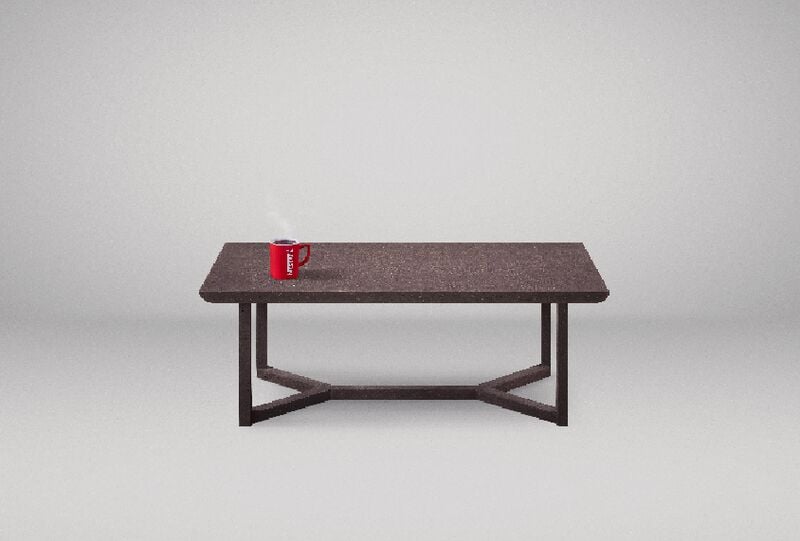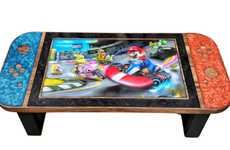
NESCAFÉ and Jesson Moen Created the Coffee Coffee Table
Elena Rahman — October 6, 2021 — Eco
References: jessonmoen & nescafe
NESCAFÉ and Jesson Moen, a Canadian designer, collaborated to create a first-of-its-kind Coffee Coffee Table. The team used repurposed coffee grounds as the primary material to make an eco-friendly piece of furniture and reduce waste in the coffee industry.
The coffee brand is on a global mission to responsibly source all its beans by the end of 2025, with a more ambitious 2022 target for Canada. The table was inspired by the NESCAFÉ Cup of Respect Platform to demonstrate that it is possible and accessible to lead a sustainable life in all domains. Jesson Moen, co-owner of Crux Design + Build, expresses that the table "uses the waste produced by one of the world's most popular beverages and turns it into a long-lasting conversation piece."
Image Credit: NESCAFÉ / Jesson Moen
The coffee brand is on a global mission to responsibly source all its beans by the end of 2025, with a more ambitious 2022 target for Canada. The table was inspired by the NESCAFÉ Cup of Respect Platform to demonstrate that it is possible and accessible to lead a sustainable life in all domains. Jesson Moen, co-owner of Crux Design + Build, expresses that the table "uses the waste produced by one of the world's most popular beverages and turns it into a long-lasting conversation piece."
Image Credit: NESCAFÉ / Jesson Moen
Trend Themes
1. Repurposed Materials - Creating furniture or products using repurposed materials, such as coffee grounds, can reduce waste and provide eco-friendly options.
2. Sustainable Design - Emphasizing sustainability in product design promotes environmentally-friendly practices and provides opportunities to incorporate recycled materials.
3. Circular Economy - Adopting a circular economy model by repurposing waste materials for new products can provide economic benefits while reducing environmental impact.
Industry Implications
1. Furniture Manufacturing - The furniture industry can incorporate repurposed materials to create eco-friendly pieces that appeal to consumers seeking sustainable options.
2. Coffee Production - The coffee industry can adopt sustainable practices, like repurposing coffee grounds, to reduce waste and promote responsible sourcing.
3. Home Decor - Home decor companies can incorporate eco-friendly materials and sustainable design principles to appeal to environmentally conscious consumers.
7
Score
Popularity
Activity
Freshness
























